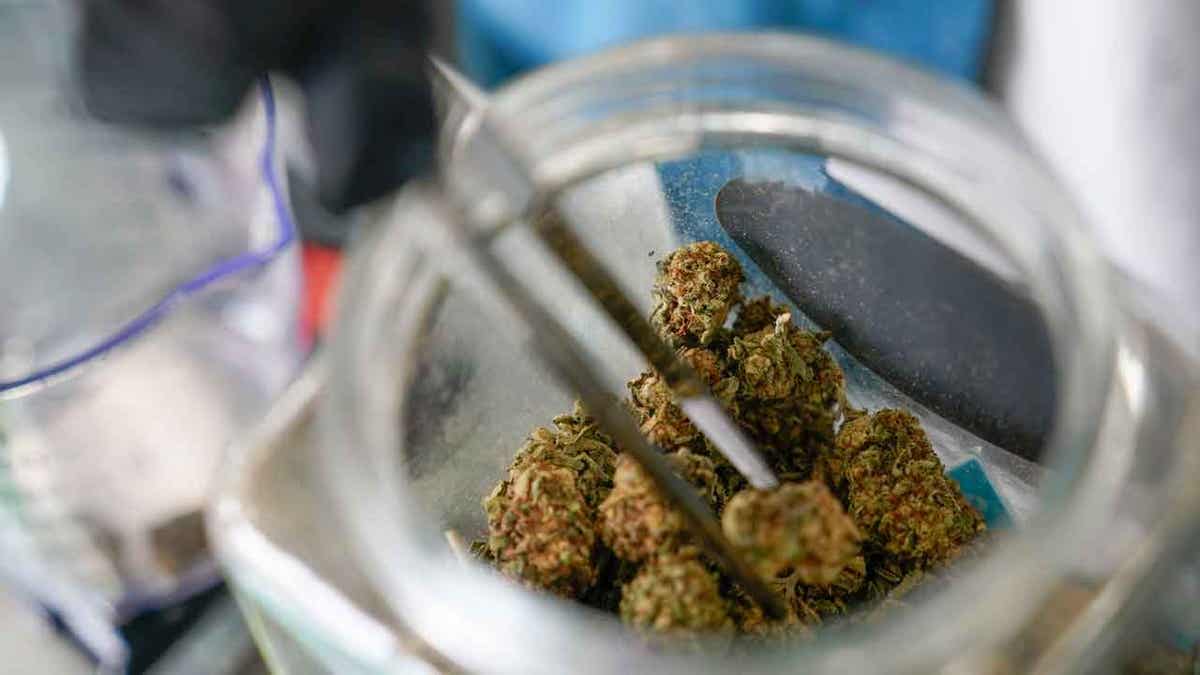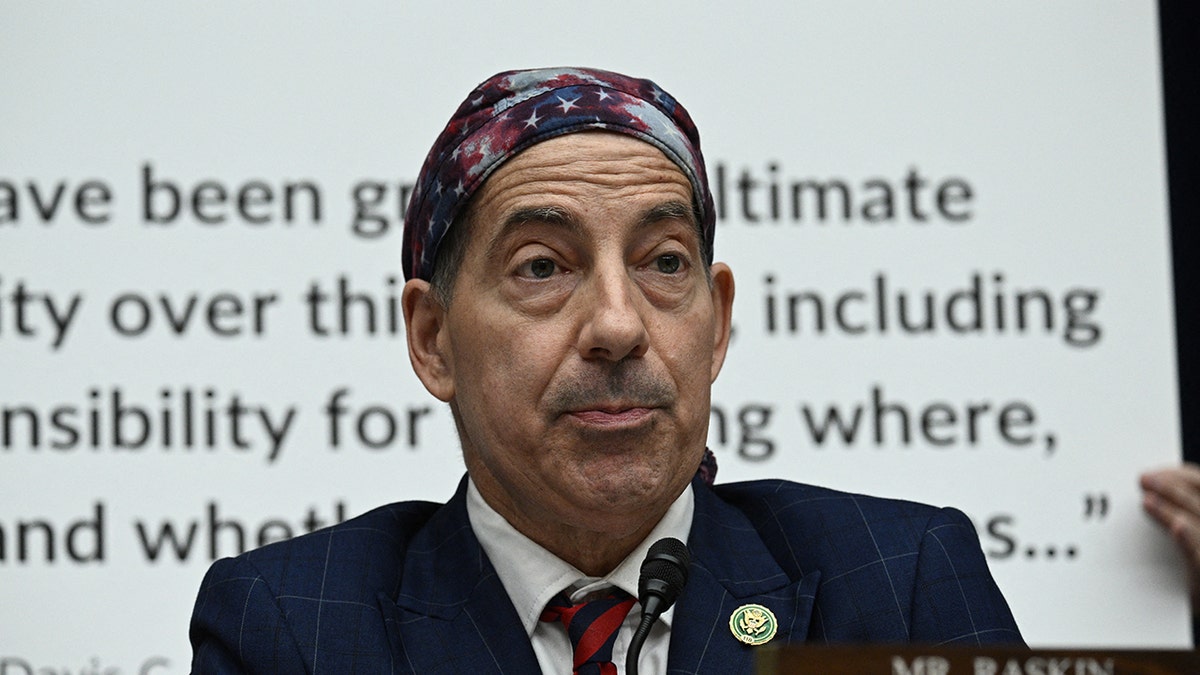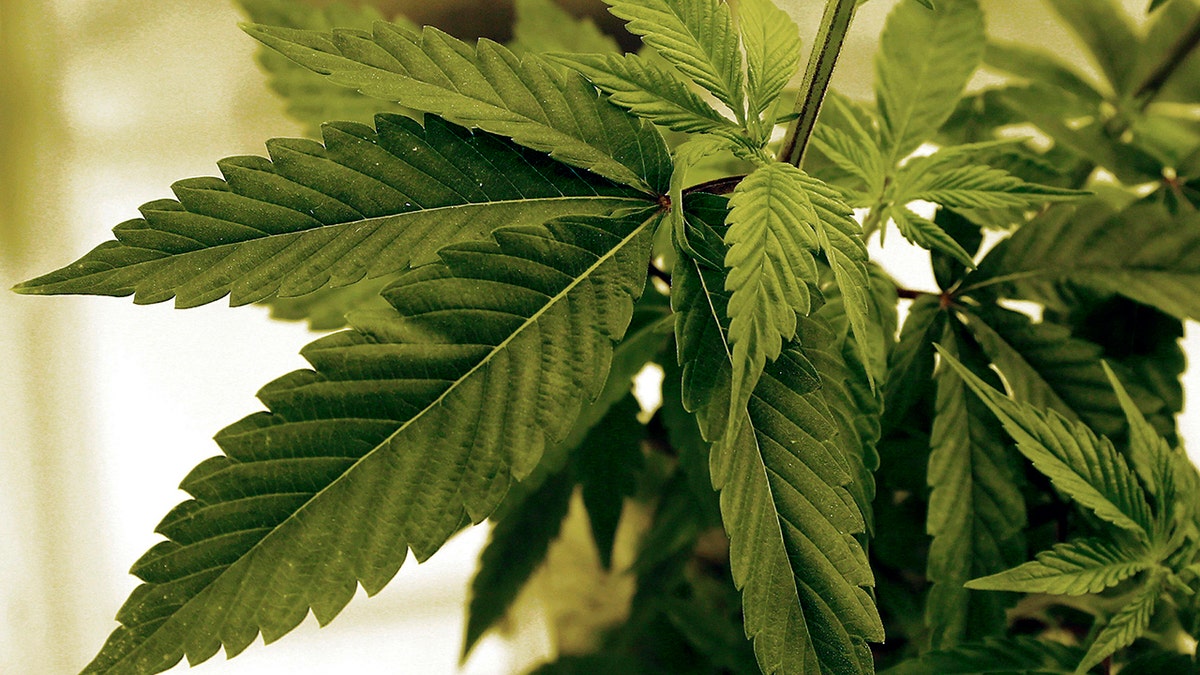Fox News Flash top headlines for August 1
Fox News Flash top headlines are here. Check out what's clicking on Foxnews.com.
Recreational cannabis has been legalized in more than 20 states and Washington, D.C., and there is now a bipartisan effort on Capitol Hill to change a law that limits federal hiring by automatically disqualifying candidates who admit to having used cannabis.
The proposed bill introduced by Rep. Jamie Raskin, D-Md., has already received bipartisan support, with Raskin and Rep. Nancy Mace, R-S.C., sponsoring the Cannabis Users Restoration of Eligibility Act. The bill comes as a growing number of states enact laws to legalize recreational marijuana, on top of the several states that have had legal pot use for years.
But despite state laws allowing cannabis use, thousands of people who consumed the plant have still been barred from gaining employment as federal workers, even if it was consumed legally.
"Every year, qualified and dedicated individuals seeking to serve our country are unable to secure federal jobs and security clearances because the federal government has not caught up with the widely established legal use of medical and recreational cannabis," Raskin said in a statement. "I am proud to partner with my friend Representative Mace to introduce the bipartisan CURE Act that will eliminate the draconian, failed and obsolete marijuana policies that prevent talented individuals from becoming honorable public servants in their own government."

There is now a bipartisan effort on Capitol Hill to change a law that limits federal hiring by automatically disqualifying candidates who admit to having used cannabis. (AP Photo/Seth Wenig, File)
The CURE Act would make it so that a person's past or current marijuana use cannot be used to deny security clearance or be the basis to be found unsuitable for federal employment. The legislation would also allow someone who has previously been denied a security clearance or a federal job opportunity over marijuana use over the past 15 years the chance to have that denial reviewed.
According to the bill, all federal agencies would be required to create a process within one year of enactment to review each past decision to deny security clearances or job opportunities over cannabis use from as far back as January 1, 2008. These agencies would need to maintain a website, so people could request a review of a decision and the agencies must also reconsider the applicant's security clearance or employment application within 90 days if they find that the individual was denied solely because of marijuana use.
MARYLAND LAW ALLOWING RECREATIONAL MARIJUANA TAKES EFFECT

Rep. Jamie Raskin introduced the Cannabis Users Restoration of Eligibility Act. (Photo by BRENDAN SMIALOWSKI/AFP via Getty Images)
"Look we’ve got 2.8 million federal employees in America. In my state, more than 100,00 people and people have been disqualified from federal [employment] because they honestly admit on a security clearance that they have once used marijuana," Raskin said in front of Congress, according to Fox 5 DC.
The bill would treat legalized marijuana like alcohol, meaning federal workers could still face serious consequences for getting high during work.

The CURE Act would make it so that a person's past or current marijuana use cannot be used to deny security clearance or be the basis to be found unsuitable for federal employment. (AP Photo/Jim Mone, File)
CLICK HERE TO GET THE FOX NEWS APP
Last year, President Biden announced a blanket pardon for people convicted at the federal level of simple possession of marijuana. Roughly 6,500 people convicted in federal court of simple marijuana possession were affected by this mass pardon, although none of them were in prison at the time and nobody is currently in federal prisons solely for simple possession of marijuana.
The president had also announced that his administration would review the Schedule I narcotic classification of marijuana under the Controlled Substances Act.















































